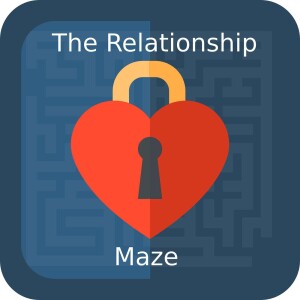
7 Signs You Might Have an Anxious-Preoccupied Attachment Style
 2023-02-27
2023-02-27
Send us a text
Today we will be looking at some of the common presentations of an anxious-preoccupied/ambivalent attachment style. A person with this insecure attachment style is generally very concerned with wanting to be completely emotionally intimate with others and finding that others are never quite as willing to get as close as desired. There is a very strong expectation as well as a fear of rejection or abandonment by others. With this attachment style there is often a lot of protest behaviour with a ready expression of feelings. Anxious-preoccupied people tend to be in the maximiser and pursuer role. The focus is on the other person as source of soothing and a safe haven to regulate oneself. However, this desire is frequently not quite satisfied, leaving the anxious-preoccupied person chronically disappointed, angry or frustrated. A person with this attachment frequently worries that others don't value them as much as they value others.
The seven signs that we will be looking at in our podcast episode include a tendency to
- exaggerate emotions,
- be 'other' focused,
- be highly dependent on others,
- have porous self-boundaries,
- act submissively and at times manipulatively,
- move between aggressiveness and passivity.
The Relationship Maze courses:
What is your argument style? Find out in our short quiz. You can find a link on our website: https://therelationshipmaze.com.
Struggling with a lot of conflict and arguments in your relationship? Learn about communicating effectively and addressing common relationship problems in our Stop Arguing, Start Loving mini course: https://therelationshipmaze.com/relationshipconflictvsl2.
Learn everything you always wanted to know about building and maintaining loving relationships in our comprehensive course The Relationship Maze, starting with understanding yourself in relationships to understanding your partner and understanding what makes for a successful relationship. We look at common causes of relationship problems and offer solutions. Learn how to address relationship problems and questions without breaking up.
Contact us for information about individual counselling/psychotherapy, couples therapy, clinical supervision or CPD training.
Tom's website
Angela's website
Struggling with a lot of conflict and arguments in your relationship? Learn about communicating effectively and addressing common relationship problems in our Stop Arguing, Start Loving mini course.
Learn everything you always wanted to know about building and maintaining loving relationships in our comprehensive course The Relationship Maze, starting with understanding yourself in relationships to understanding your partner and understanding what makes for a successful relationship. We look at common causes of relationship problems and offer solutions. Learn how to address relationship problems and questions without breaking up.
More Episodes
 2021-06-13
2021-06-13
 2021-06-06
2021-06-06
 2021-05-31
2021-05-31
 2021-04-25
2021-04-25
Create your
podcast in
minutes
- Full-featured podcast site
- Unlimited storage and bandwidth
- Comprehensive podcast stats
- Distribute to Apple Podcasts, Spotify, and more
- Make money with your podcast
It is Free
- Privacy Policy
- Cookie Policy
- Terms of Use
- Consent Preferences
- Copyright © 2015-2024 Podbean.com




